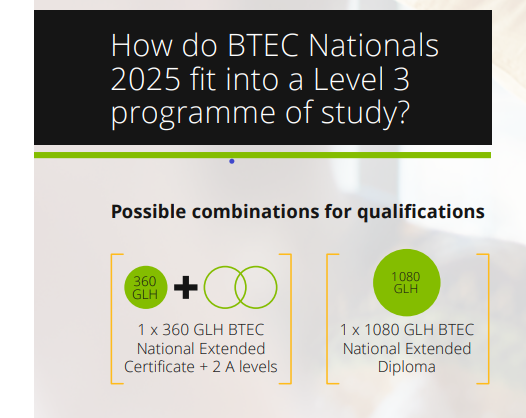Post-16 Study Programmes
A Curriculum that helps you to achieve your full potential.
Follow the 'in this section' links for details of the courses offered by each faculty. You can also see a list of all available courses on our entry requirements and applications page:
For information on the courses offered by each faculty see the links to the left or at the bottom of this page.
Students have three pathways available to them:
A Levels
A Levels are intended to provide a high level of academic challenge - they are linear courses meaning that all the assessment is in Year 13, and for most subjects all or most of the assessment is by exams sat in May and June of Year 13.
Entry requirements for this pathway are that students must have achieved at least 6 GCSEs at grade 4 or above and will need to have achieved the entry requirements for individual subjects. Most successful A Level students have an average GCSE grade of 6 or higher.
Student will take either three or four A Levels, we recommend that only students who have achieved seven or more GCSEs at grade 6 or abov take four A Levels.
BTEC Level 3
Level Three BTECs are two-year courses equivalent to A Levels - the Distinction* grade is worth the same UCAS points as an A* grade at A Level.
Unlike A Levels BTECs are available in different 'sizes' - the Level 3 'extended certificate' is equivalent to one A Level, a 'diploma' to two A Levels and the 'extended diploma' to three A Levels. Students taking a BTEC extended diploma have the same number of lessons as those taking three separate A Levels.
BTECs are assessed through a mixture of coursework and exams, with assessments take place throughout the BTEC course, and individual exams can be re-taken if needed (unlike A Level exams). BTECs therefore suit students who are good at keeping on top of coursework and those who are not necessarily at their best in exam, however, they can provide an excellent route into university courses often mistakenly regarded as requiring A Levels.
25% of students at university in the UK gain their places having studied BTEC courses.
Depending on size, students can take these qualifications alongside two A levels, or alternatively, as the substantial qualification in their study programme, where permitted. The specifications and Statements of Purpose will clearly detail potential combinations for study programmes for each qualification.
Combined A Level and BTEC courses
A significant number of our students choose s combination of BTEC and A Level courses. Many of these benefit from the spread of assessments through Years 12 and 13 for their BTECs, allowing them to focus more in their A Levels at the end of Year 13, and enjoy a mixture of academic and more vocational learning - for example combining an A Level in Psychology and Sociology with a BTEC Extended Certificate (equivalent to one A Levels) in Health and Social Care.
Other elements of the Post-16 Study Programme
Post-16 study programmes typically involve the equivalent of three A Level courses, along with some required and some optional 'extras'.
Required extras
- A Personal Development programme, with a particular focus on preparing for independent living, health and relationships education.
- Regular volunteering or leadership activity, in or out of the academy.
- A week of work experience, completed in Year 12.
Optional extras
We also expect our students to undertake one of the following:
- An Extended Project Qualification (equivalent to half an A Level)
- Duke of Edinburgh Gold Award
- Level 3 Core Maths (equivalent to half and A Level)
- Timetabled work experience

